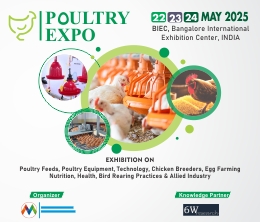Prominent Companies in Europe Conductive Yarn Market with Size | Manufacturers & Suppliers 2025
Prominent Companies in Europe Conductive Yarn Market with Size
Europe Conductive Yarn Market plays a pivotal role in advancing technology and innovation across various sectors, primarily focusing on smart textiles, wearable technology, and advanced fabrics. By incorporating conductive materials into traditional yarns, the market has paved the way for textiles that can conduct electricity, which opens up possibilities for applications in electronics and smart clothing. Among the most significant contributions is the seamless integration of functionality within fabrics, allowing them to transmit data, heat, or energy, hence influencing the burgeoning field of connected clothing.
Key players in the market have led strides in improving the performance and capabilities of conductive yarns. Through extensive research and development, advances in material composition have been achieved, focusing on enhancing conductivity while maintaining the textile's inherent flexibility and durability. This dual focus ensures that conductive yarns meet the growing demand for efficiency without compromising comfort and wearability, a crucial factor in the consumer market where garments need to remain pleasant to touch and versatile for different uses.
Sustainability is another area of focus. Developments in eco-friendly production processes have minimized the environmental impact of manufacturing conductive yarns. The adoption of greener methods aligns with broader industry trends towards sustainability, including the use of recycled or biodegradable materials. These practices are integral as they resonate with heightened environmental awareness among consumers and drive the market toward more responsible production methods.
Furthermore, conductive yarns have expanded their impact beyond clothing to include sectors like healthcare, automotive, and consumer electronics. In healthcare, smart fabrics fashioned from conductive yarns offer remote patient monitoring solutions, capable of tracking vital signs in real-time. This capability revolutionizes how health care can be administered, providing continuous, non-intrusive monitoring that enhances patient outcomes. In the automotive industry, such innovative fabrics integrate functionality into vehicle interiors, improving safety and user experience through embedded sensors and responsive surfaces.
Finally, the European Conductive Yarn Market exemplifies a blend of innovation, sustainability, and adaptability. By continually advancing the capabilities of conductive materials, the market not only enhances textile functionality but also addresses modern industrial challenges, paving the way for future technological integrations. Through these endeavors, the market is firmly set on a trajectory of growth, shaping the future of smart textiles and beyond. As per 6 Wresearch, Europe Conductive Yarn Market is projected to grow at a significant CAGR of 7.1% from 2025-2031F.
List of Leading Companies in the Europe Conductive Yarn Market
Europe Conductive Yarn Market: Prominent Companies
1. TE Connectivity
| Company Name | TE Connectivity |
| Established Year | 1941 |
| Headquarters | Schaffhausen, Switzerland |
| Official Website | Click Here |
TE Connectivity is at the forefront of developing leading-edge conductive yarns and textiles, providing solutions that meet the high demands of modern electronic industries. With a rich history in connectivity and sensor technology, the company fuses its expertise with innovative textile production, focusing on enhancing electrical conductivity and fabric durability. Their products are used in a wide range of applications, from wearable electronics to healthcare solutions, facilitating seamless integration of electronic functionality into everyday materials. By leveraging its global presence and research capabilities, TE Connectivity aims to deliver sustainable solutions, aligning its operations with eco-friendly practices and striving for reduced environmental impact.
2. Glen Raven, Inc.
| Company Name | Glen Raven, Inc. |
| Established Year | 1880 |
| Headquarters | Burlington, North Carolina, USA |
| Official Website | Click Here |
Though originally an American company, Glen Raven's significant European operations focus on high-performance fabrics, including conductive yarns. They invest substantially in research and development, generating innovative solutions for the smart textiles market. The company’s offerings are integral to sectors like transportation and defense, where durable material with electrical functionality is paramount. They prioritize sustainability by promoting recycled materials in yarn production, ensuring their textiles are both environmentally responsible and technologically advanced. Glen Raven's emphasis on adaptability and quality underlines its commitment to the evolving needs of the conductive yarn market.
3. Habasit
| Company Name | Habasit |
| Established Year | 1946 |
| Headquarters | Reinach, Switzerland |
| Official Website | Click Here |
Habasit is renowned for its comprehensive approach to textile innovation, offering conductive yarns tailored for industrial applications. With an extensive global network, the company ensures its solutions are accessible and efficient, focusing on high-potential markets in Europe. Their yarns are designed for durability and functionality, useful in electronics and power transmission systems. Habasit's eco-centric approach to production processes includes utilizing eco-friendly materials and energy-efficient manufacturing techniques. This strategy not only reduces their carbon footprint but also sets a standard for sustainable production within the industry.
4. Sefar AG
| Company Name | Sefar AG |
| Established Year | 1830 |
| Headquarters | Heiden, Switzerland |
| Official Website | Click Here |
Sefar AG, one of the oldest companies in the textile industry, has successfully transitioned into the modern era by embracing the challenges of conductive yarn technology. The company's longstanding experience supports their innovative solutions, particularly in architectural and automotive applications, where their yarns contribute significantly to the functionality and aesthetics of products. Sefar AG places a strong emphasis on research and technological integration, ensuring their conductive textiles meet rigorous industry standards. Sustainability guides their operations, as reflected in their eco-friendly product lines and efficient manufacturing processes aimed at reducing waste and energy consumption.
5. Toray Industries, Inc.
| Company Name | Toray Industries, Inc. |
| Established Year | 1926 |
| Headquarters | Tokyo, Japan |
| Official Website | Click Here |
Toray Industries is a major player on the global stage for high-quality textile production, including conductive yarns for innovative applications. Their extensive research and development initiatives aim at pushing the boundaries of textile capabilities, ensuring they offer cutting-edge solutions for high-tech industries such as aerospace and medical textiles. Toray is committed to sustainability, implementing processes that limit environmental impact while using resources efficiently. Their cutting-edge materials contribute to creating smarter, more connected textile solutions for modern needs.
6. 3M
| Company Name | 3M |
| Established Year | 1902 |
| Headquarters | Saint Paul, Minnesota, USA |
| Official Website | Click Here |
Known for its global innovation prowess, 3M has expanded its expertise into the conductive yarn market with a focus on creating intelligent textile solutions. Their conductive yarns are engineered for versatility, supporting a myriad of applications across electronics and smart wearables. Employing a forward-thinking approach, 3M invests heavily in research to enhance product functionalities while adhering to sustainable practices. Their commitment to innovation and environmental consciousness underscores 3M’s strategy to not only fulfill current demands but also anticipate future market needs, setting a pathway for continuous advancement.
7. Saati S.p.A
| Company Name | Saati S.p.A |
| Established Year | 1935 |
| Headquarters | Appiano Gentile, Italy |
| Official Website | Click Here |
Italian-based Saati S.p.A is a leader in the industrial fabrics sector, recognized for its advanced conductive yarns that serve automotive and medical applications. Their products are developed with cutting-edge technology, ensuring high performance and reliability. Saati integrates eco-conscious manufacturing practices to enhance sustainability, using advanced techniques to minimize environmental impact. Their innovative solutions reflect a balance between technological advancement and environmental stewardship, responding effectively to the shifting demands of the conductive yarn market.
8. ThermoSoft International Corporation
| Company Name | ThermoSoft International Corporation |
| Established Year | 1996 |
| Headquarters | Vernon Hills, Illinois, USA |
| Official Website | Click Here |
ThermoSoft International is pivotal in creating innovative conductive yarn solutions for the heating sector, specializing in products that enhance comfort and safety through embedded technology. Their conductive yarns enable the integration of uniform heating capabilities in textiles, serving industries ranging from home furnishings to automotive. ThermoSoft focuses on the future by investing in sustainable materials and production methods to ensure environmentally responsible product offerings. Their commitment to research and innovation drives their continued success in meeting the demands of an energy-efficient, technologically advanced market.
9. Beaulieu International Group
| Company Name | Beaulieu International Group |
| Established Year | 1959 |
| Headquarters | Waregem, Belgium |
| Official Website | Click Here |
Beaulieu International Group is a prominent name in the development and manufacture of textile technologies, including conductive yarns. Their robust portfolio supports a broad array of applications, driven by a commitment to advanced research in improving yarn performance and sustainability. The company is known for its eco-friendly initiatives, adopting innovative recycling techniques and using sustainable materials. Their conductive yarns cater to technologically demanding sectors, underscoring Beaulieu’s dedication to creating added value through sustainable and versatile textile solutions.
10. EASYCAT GmbH
| Company Name | EASYCAT GmbH |
| Established Year | 1996 |
| Headquarters | Pforzheim, Germany |
| Official Website | Click Here |
A leader in the development of smart textiles, EASYCAT GmbH specializes in conductive yarn tailor-made for integrating electronics into fabrics, thus enhancing product functionality across various industries. Their expertise in combining textile engineering and electronic innovation results in high-performance products well-suited for wearable technology and industrial applications. EASYCAT GmbH prioritizes sustainability in its operations by embedding eco-conscious practices and recycling techniques throughout its production process, aligning with the industry's best practices for environmental responsibility and product integrity.
11. Jarden Applied Materials
| Company Name | Jarden Applied Materials |
| Established Year | 1992 |
| Headquarters | Raleigh, North Carolina, USA |
| Official Website | Click Here |
Now part of Newell Brands, Jarden Applied Materials has a strong foothold in the conductive yarn segment, especially in Europe, focusing on high-tech applications in smart textiles. Their yarns are characterized by superior conductivity and durability, used extensively in the sports and aerospace industries. Jarden Applied Materials has a strong commitment to sustainability, infusing eco-friendly practices into their manufacturing processes while continuously researching innovative solutions for the future. Their conductive yarns are at the forefront of technological advancements, contributing to smarter and more sustainable textile applications.
12. DuPont de Nemours, Inc.
| Company Name | DuPont de Nemours, Inc. |
| Established Year | 1802 |
| Headquarters | Wilmington, Delaware, USA |
| Official Website | Click Here |
With over two centuries of experience in producing high-quality industrial materials, DuPont de Nemours is a leading innovator in the conductive yarn market. Their advanced research capabilities have resulted in the development of state-of-the-art products that cater to diverse industries, including automotive, aerospace, and electronics. DuPont's commitment to sustainability is evident in its use of recycled materials and eco-friendly production processes for its conductive yarns. Their continuous investment in research and technology enables them to stay ahead of market demands while ensuring a sustainable future.
Frequently Asked Questions About the Market Study (FAQs):
Search
Related Market Takeaways
- Top Companies in Middle East Self-Driving Truck Market Size | Suppliers 2025
- Top companies in the Middle East Space Power Electronics market with Market Size | Suppliers 2025
- Top Companies in Middle East Lab Automation Market & Market Size | Suppliers & Manufacturers 2025
- Top Companies in Middle East IoT Market & Market Size | Manufacturers & Official Website 2025
- Top Companies in Middle East Iron Market & Market Size | Suppliers 2025
- Top Companies in Middle East Iron Ore Market & Market Size | Manufacturers & Suppliers 2025
- Top Companies in Middle East Iron Oxide Pigments Market & Market Size | Manufacturers 2025
- Top Companies in Middle East Kombucha Market & Market Size | Manufacturers 2025
- Top Companies in Middle East IT Operations Analytics Market & Market Size | Manufacturers & Official Website 2025
- Top Companies in Middle East IT in Real Estate Market & Market Size | Suppliers & Manufacturers 2025
Industry Events and Analyst Meet
Our Clients
Whitepaper
- Middle East & Africa Commercial Security Market Click here to view more.
- Middle East & Africa Fire Safety Systems & Equipment Market Click here to view more.
- GCC Drone Market Click here to view more.
- Middle East Lighting Fixture Market Click here to view more.
- GCC Physical & Perimeter Security Market Click here to view more.
6WResearch In News
- India's Printer Market Faces 20.7% Decline in Q4 2023: Epson and HP Lead Amidst Downturn
- India's Camera Market Sees 8.9% Decline in Q4 2023; Canon Leads with 38.4% Share
- Doha a strategic location for EV manufacturing hub: IPA Qatar
- Demand for luxury TVs surging in the GCC, says Samsung
- Empowering Growth: The Thriving Journey of Bangladesh’s Cable Industry
- The future of gaming industry in the Philippines













